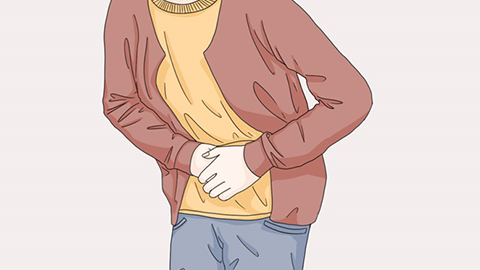What causes menstrual periods lasting more than seven days without stopping, and what should be done?
Menstruation, commonly referred to as a period, is considered prolonged if it lasts more than seven days without ending. This may be caused by emotional fluctuations, irregular sleep patterns, dysfunctional uterine bleeding, endometrial polyps, pelvic inflammatory disease, and other conditions. Symptoms can be improved through emotional regulation, regular作息 (daily routines), and medication. Seek prompt medical attention if there is heavy bleeding or accompanying abdominal pain.
1. Emotional fluctuations: Long-term anxiety and excessive stress can disrupt hormone secretion, leading to incomplete shedding of the endometrium and prolonged, irregular menstrual bleeding. It is recommended to maintain a positive mood and relieve stress through activities such as listening to music or taking walks, avoiding intense emotional swings.
2. Irregular作息 (sleep patterns): Staying up late and inconsistent daily routines can disrupt endocrine rhythms and impair ovarian function, thereby prolonging menstrual bleeding. It is advised to maintain regular作息 habits, avoid staying up late, and ensure sufficient daily sleep to help stabilize the endocrine system.

3. Dysfunctional uterine bleeding: Endocrine disorders can cause abnormal uterine bleeding, characterized by prolonged menstrual periods and variable blood flow. Patients may take medications such as dydrogesterone tablets, estradiol valerate tablets, or tranexamic acid tablets under medical supervision to alleviate symptoms.
4. Endometrial polyps: Localized overgrowth of the endometrial tissue forms polyps, interfering with normal endometrial shedding and resulting in prolonged menstruation and increased menstrual flow. Under medical guidance, patients may use medications such as ethinylestradiol/cyproterone acetate tablets, levonorgestrel-releasing intrauterine systems, or metronidazole tablets to relieve discomfort.
5. Pelvic inflammatory disease: Bacterial infection causes inflammation in the pelvic region, leading to congestion and swelling of the endometrium, which prolongs the menstrual period and is often accompanied by lower abdominal pressure and abnormal discharge. Patients may follow medical advice to take medications such as cefixime dispersible tablets, levofloxacin hydrochloride capsules, or Gynecological Qianjin tablets to improve symptoms.
Maintain good genital hygiene and change sanitary pads frequently. Eat a light diet and avoid spicy or cold foods. Get adequate rest and avoid strenuous exercise. Keep emotions stable to support recovery and reduce abnormal bleeding.







